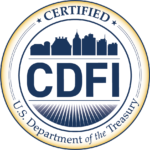
Easy Tips for Trimming Your Extra Spending
January 31, 2022
For some people, spending is merely a necessity, a way to obtain life’s essentials and nothing else. For others, spending is more of a hobby, resulting in splurges that can cause a build-up of overwhelming debt. Fortunately, most of us fall somewhere in the middle of that spectrum. We know that spending money is how we provide for our everyday needs, but it can also add interest, comfort, and enjoyment to life. Although money can help us in many ways, we face a common problem: spending outside our means – or spending so much that we are unable to save for emergencies, retirement, or other financial goals.
Cutting unnecessary spending is one of the key ways you can free up cash to reduce debt, increase savings and achieve goals, but how do you do it? Extra spending can hide in many of your daily financial habits, but it’s easy to find it if you know where to look. Here are a few tips that may help.
Examine Entertainment
Entertainment such as sporting events and concerts to your favorite content streaming service, aren’t always just a luxury They can also be a way to add variety and enjoyment to your days, helping boost life satisfaction and mood. However, entertainment spending can quickly spiral out of control and consume more than its fair share of your monthly budget.
Review your entertainment expenses over the last six months or so. As a general rule, your costs for entertainment should not exceed 5% to 10% of your take-home pay. Aim for the lower end of that range if you are behind on your most important financial goals, like retirement or building an emergency savings fund. If your entertainment spending exceeds that range, it’s time to get picky and creative about your entertainment. Make some easy switches, like swapping that movie in a theater to a movie streaming at home, where the popcorn’s cheaper too. Or coordinate a block watch party instead of attending every hometown game in person.
Fine-Tune your Food Choices
Eating out or selecting high-end groceries can also blow your budget. If you’re eating out frequently, whether at fine restaurants or fast food establishments or bringing home expensive pre-prepared foods from the grocery store, make a few adjustments. Trade some of those nights out for an evening at home trying new recipes. If you go out, skip the restaurant’s appetizers and alcoholic beverages, which can add a lot to the check’s total. Instead of choosing vegetables that come sliced, purchase the regular veggies and spend the extra two minutes chopping them yourself. Over time, these simple changes can help you keep substantially more in your wallet.
Scrutinize Services and Subscriptions
We can also overspend on everyday services, subscriptions, and other memberships. In two easy steps, you can likely find plenty of savings. First, examine all of them to identify any that are not used – like gym memberships, magazine subscriptions, or certain streaming services, for example. You can cancel these and save the money you’ve been spending on these each month. Next, go through those services you must keep to identify any that you may be able to shop for better prices. You can often find better rates by switching your utility providers or insurance agencies regularly.
Finesse your Financing
Having loans or credit card balances also means spending some of your money on interest. Transferring your balances to a lower-rate credit card or consolidating debt into a lower-rate loan can help you pay less in interest each month. It’s a good idea to see your current rates and compare them with those available from other lenders. Plus, while rates are still low, it may be an excellent time to consider refinancing your current auto or home loan.
At UCU, we offer low rates on all our credit cards and loans and are happy to chat with you about helping you pay less on your financing. We’re also great at helping our members set and reach financial goals, so give us a call at 800-696-8628 for assistance.




